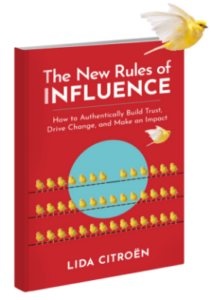
At a career event recently, an executive in transition told me, “I think this one hiring manager is avoiding me. I had a great interview and she seemed happy with my experience and resume, but now she won’t call me back or respond to my emails.”

What he said next was alarming; “I email her every morning, ping her on LinkedIn every couple of days, and I even parked outside the office to see if I can catch her leaving work. I just need to speak with her about next steps to getting me hired!”
WAIT a second! While I encourage job seekers to show passion and clearly demonstrate excitement over a potential job, there is a fine line between being persistent and enthusiastic and stalking. No hiring manager wants to feel pressured towards a candidate, especially from the job seeker! They are busy, recruiting for many positions, and while the job seeker might feel anxious and impatient, it’s important that the hiring manager not see that.
There’s a cadence to the job search process. You can’t rush it because you’re impatient.
In today’s globally transparent and approachable world, it’s possible to find a lot of information about a person – from what social platforms they prefer, to where they live and where their kids go to school. To come across as harassing or stalking would make anyone fearful and could lead them to take legal action.
Instead of crossing that line, let’s look at some ways to connect and communicate with hiring managers that keep your name in front of them, remind them that you are interested in the position but don’t make them fearful.
A Persistent Job Seeker Will:
- Ask the hiring manager to connect on LinkedIn. Send a personalized note reminding them that you met, what you discussed, and other connections that help them recall who you are. Hiring managers meet a lot of candidates in a day; use your connection request to remind them of your personal brand and offer.
- Not send a Facebook invitation to be friends. Facebook is the social and fun platform. While hiring managers might look at your Facebook profile and timeline, asking them to be “your friend” could come across as presumptuous. They might feel resistant to share their personal life with you.
- Use email to communicate. When an email comes in to the hiring manager’s inbox, it should contain concise and useful information. If you are following up on an interview, get to the point quickly. If you are sending additional information as a follow up, make that clear in the subject line. If the email is to remind them you are interested in the position, then be sure to add bullet points reminding them of your experience, value proposition and relevancy for the open position.
- Use the phone to communicate. Phone calls can be very disruptive to one’s busy day. Be sure to have your message and objective in mind before you call. Remind them who you are, the position you are applying for, and then get to your question or comment: Are you following up on the status of the position? Were you asked to provide references and have that information now? Think about your expected outcome from the call – do you want to set another meeting? Are you looking for additional people at the company to speak with? Be sure to remain open to small talk, too. Some hiring managers enjoy a friendly chat before talking business. Listen for cues in those first seconds of the call to see if you should go straight into the purpose of your call or if a few minutes of chit chat about weather, vacations, and family might help you build rapport.
- Not forget snail mail. Found a great article or reference materials you think the hiring manager would enjoy? Send it by mail instead of email. Anything you mail should be inexpensive (i.e. don’t send an expensive book you mentioned in your interview) and easy to connect to you and the interview. One candidate told me he sent a bouquet of flowers as a “thank you” to a recruiter once, and her husband became very upset. It crossed the line. Job seeking is a professional experience. Always keep that in mind when sending information and items to hiring managers.
It can easily feel like the hiring manager is not on the same timeline as the job seeker. To the job seeker, urgency and anxiousness are a part of daily life. Hiring managers are looking for qualified candidates who will share the values and commitment of the company. Every step of the hiring process is critical – from resume to interview to follow up.


